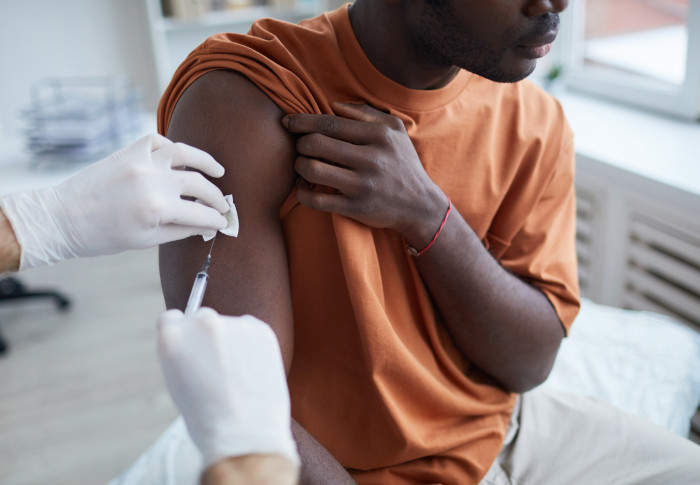COVID immunity study and green league ranking: News from the College

Here’s a batch of fresh news and announcements from across Imperial.
From research into how immunocompromised people respond to COVID-19 vaccination, to a new university ranking on climate action, here is some quick-read news from across the College.
COVID immune response study
A new Imperial-led study is recruiting 35,000 immunocompromised people to determine their immune response to COVID-19 vaccination and the risk of infection or severe disease over six months. The study aims to inform vaccination strategies and identify groups who could benefit from other preventative therapies. It will be launched with over £850,000 of funding from the Medical Research Council and several health charities.
Immunocompromised people are less likely to develop an antibody response following vaccination, but within this group there are variations between people and immune conditions.
The study will follow participants for six months after their third vaccine dose to determine how many people have detectable antibodies, and if not having antibodies leads to increased risk of infection and severe disease.
Recruitment is open, please visit the study website for more information.
EMBO Young Investigator
 Dr Benjamin Schumann, from the Department of Chemistry, has been named an EMBO (European Molecular Biology Organisation) Young Investigator. The Young Investigator Programme recognises and supports outstanding life scientists in early stages of their independent careers.
Dr Benjamin Schumann, from the Department of Chemistry, has been named an EMBO (European Molecular Biology Organisation) Young Investigator. The Young Investigator Programme recognises and supports outstanding life scientists in early stages of their independent careers.
Dr Schumann works on glycans – sugar molecules that cover every cell in the human body and are involved in processes including metabolism and responding to pathogens. With his team, he has developed a set of chemical ‘precision tools’ that allow for the direct mapping of glycans, which could allow scientists to characterise changes in cell surface glycans during the formation of diseases such as cancer.
Dr Schumann said: “This is a tremendous honour and a testament to my team’s amazing work. It is great to see glycans entering the stage in biomedicine. Being part of the EMBO Young Investigator Programme will help us forge a network at a time when international collaborations are more important than ever.”
Read more on the EMBO website: “Twenty-six young investigators join the EMBO community”
Imperial professor memoir
The Royal Society has published a memoir of the late Professor Felix Weinberg, who was Professor of Combustion Physics at Imperial. He joined Imperial in 1951 and remained at the College until his death in December 2012 at the age of 84.
 Professor Weinberg is noted for his optical and electrical studies of flames and his pioneering development of innovative combustion methods. He was the author, co-author or editor of four books and well over 200 papers in the scientific literature. Professor Weinberg was also a survivor of several Nazi concentration camps during World War II, which he wrote about in his own memoir, Boy 30529.
Professor Weinberg is noted for his optical and electrical studies of flames and his pioneering development of innovative combustion methods. He was the author, co-author or editor of four books and well over 200 papers in the scientific literature. Professor Weinberg was also a survivor of several Nazi concentration camps during World War II, which he wrote about in his own memoir, Boy 30529.
The new memoir, free to read online, is part of Biographical Memoirs of Fellows of the Royal Society.
Athena Lecture
The 20th Athena Lecture - titled ’Of passions, failures, bold decisions and alternative careers’ - has been given by Dr Magdalena Skipper, Editor in Chief of Nature. In the talk, Dr Skipper described her career journey, which she said was rooted in a childhood passion for learning.
She spoke about how she studied in Nottingham and Cambridge before moving into science publishing and emphasised the importance of valuing careers outside research as a way of contributing to scientific work.
Dr Skipper also spoke of the need for diverse role models and explained why increasing diversity within Nature and in the field of science more broadly was an important focus for her. In a detailed Q&A session, she addressed the importance of mentorship and how personal failures can lead to good developments.
New green league ranking
 Imperial College London’s efforts to become 'greener' have been reflected in the latest People and Planet University League – a UK student-led ranking in social and environmental justice.
Imperial College London’s efforts to become 'greener' have been reflected in the latest People and Planet University League – a UK student-led ranking in social and environmental justice.
In 2021, Imperial rose 64 places to its new position of 66th in the ranking. It comes after the College published a new report on its socially responsible investment and engagement, and participated in the United Nations Climate Change Conference (COP26) in November.
Professor Paul Lickiss, Academic Leader in Sustainability at Imperial, said: "I am delighted to see this improvement, which is the result of everyone increasingly considering the sustainability aspects of everything we do. While we are going in the right direction, there is still clearly much to be done."
Read more about Imperial’s Sustainability Strategy and get involved.

Want to be kept up to date on news at Imperial? Sign up for our free quick-read daily e-newsletter, Imperial Today.
Article text (excluding photos or graphics) © Imperial College London.
Photos and graphics subject to third party copyright used with permission or © Imperial College London.
Reporter
Simon Levey
Communications Division
Sarah Saxton
Communications Division
Hayley Dunning
Communications Division
Emily Head
Communications Division
